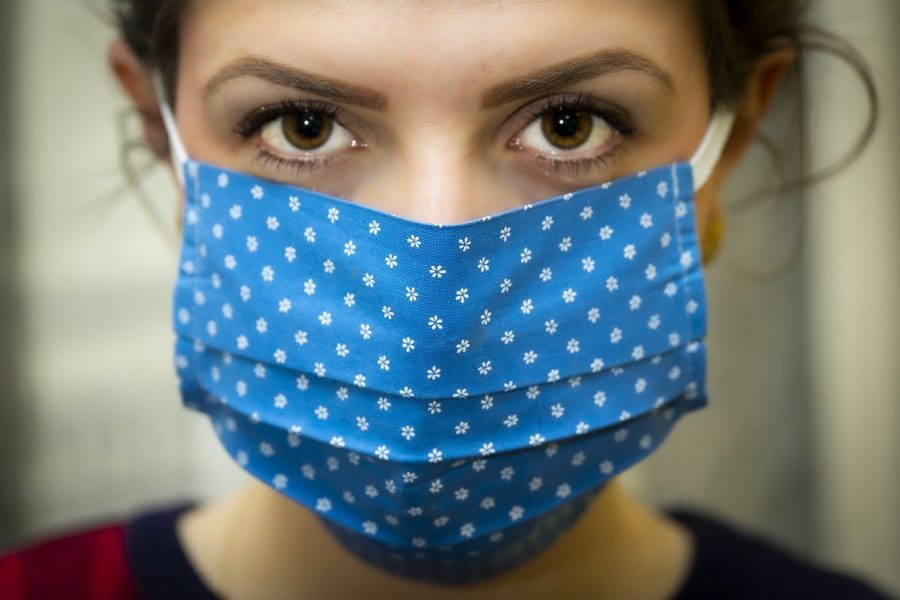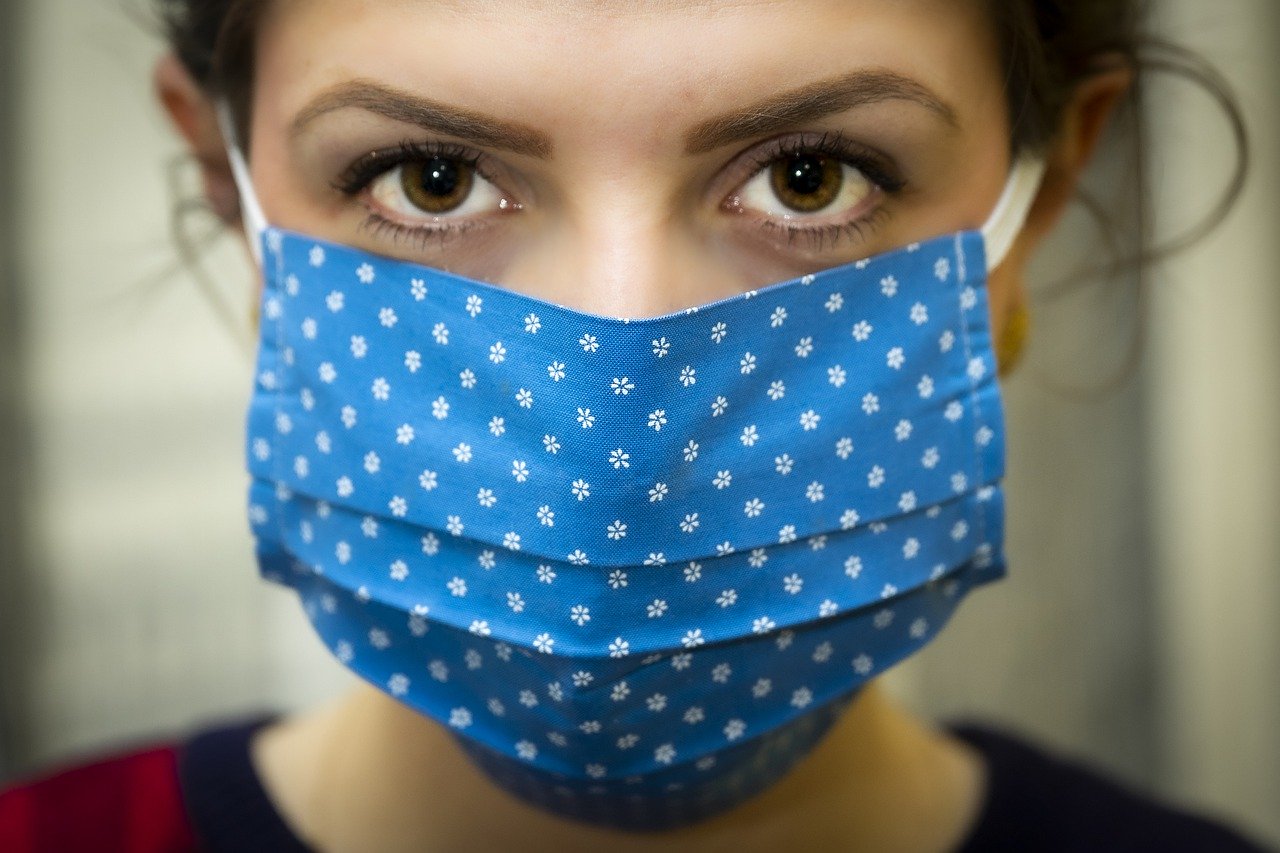
South Africa Covid Update: Toughest 24 Hours, Over 10K Patients Since March, and 4,000 Parolees
South Africa recorded its deadliest 24 hours since the Coronavirus outbreak, after 128 people succumbed to COVID-19 on Tuesday, the Department of Health announced on Wednesday. There have now been over 150,000 Covid-19 cases in SA. The Department urged the elderly and those with co-morbidities to stay home after it was revealed that 10,700 people […]

South Africa recorded its deadliest 24 hours since the Coronavirus outbreak, after 128 people succumbed to COVID-19 on Tuesday, the Department of Health announced on Wednesday. There have now been over 150,000 Covid-19 cases in SA. The Department urged the elderly and those with co-morbidities to stay home after it was revealed that 10,700 people have been hospitalised since March. And, in order to maintain social distancing, another 4,000 parolees have been released from prison. Here’s the latest Covid-19 Update from South Africa…

Over 150,000 Covid-19 Cases in South Africa and another 128 Deaths
Of the new deaths, 52 are from the Western Cape, 36 from Gauteng, 25 from the Eastern Cape, 11 from KwaZulu-Natal and four from Mpumalanga, bringing the death toll to 2 657.
The number of COVID-19 cases has increased by 6 945 as the infection rate rose to 151 209, the Health Minister, Dr Zweli Mkhize, said.
The Western Cape is the hardest-hit province, with 62 481 cases, followed by Gauteng with 42 881, Eastern Cape 27 686 and KwaZulu-Natal 9 674.
Gauteng’s cases grew by 3 040 since the last report and the province is expected to be the epicentre, overtaking the Western Cape in the next coming days.
The North West has 4 187 cases, Free State 1 514, Mpumalanga 1 190, Limpopo 1 131 and Northern Cape 465.
The Health Minister said 1 630 008 tests have been conducted since the outbreak.
According to the World Health Organisation, there are 10 185 374 cases globally and 503 862 deaths, with 3 946 having been recorded on Tuesday.
10,700 COVID-19 Patients Hospitalised Since March as SA
Dr Mkhize has urged the elderly and those living with comorbidities to take extra precaution, avoid leaving home and ensure their chronic conditions are managed.
Citing the National Institute for Communicable Diseases’ report released on 21 June, Mkhize said it confirmed that these population groups are most vulnerable.
According to the NICD report, 10 700 COVID-19 patients have been admitted from 269 public and private facilities between 5 March and 21 June 2020.
Average ages and conditions
The study revealed that the median age of COVID-19 admissions was 50 years, 338 were patients who are 18 years and younger and 1 386 older than 70, while 5 778 were female.
In addition, 8 245 patients had comorbid conditions, 2 810 had one and 3 126 had two or more underlying illnesses.
“Of the 5 836 patients who had a comorbid condition, the most commonly reported were hypertension 3 419 and diabetes 2 813 and there were 1 116 patients admitted with HIV, 240 with active tuberculosis and 579 patients with the previous history of tuberculosis.”
Clinicians also noted obesity as a risk factor in 297 patients.
“Of the 10 700 admissions, 3 260 patients were in the hospital at the time of the report, 5 925 patients were discharged alive or transferred out, and 1 515 patients had died,” Mkhize added.
Mkhize noted that some of the factors associated with in-hospital mortality were older age groups; male sex; and having comorbid hypertension, diabetes, chronic cardiac disease, chronic renal disease, malignancy, HIV and obesity.
Over 4 000 Parolees Released To Make Social Distancing Possible
Justice and Correctional Services Minister Ronald Lamola says 4 138 low risk offenders have been released on parole to ease prison population figures to minimise the risk of Coronavirus spreading in correctional centres.
Following President Cyril Ramaphosa’s approval for the parole of 19,000 low risk offenders – in order to curb the spread of covid-19 in overcrowded prisons – the department began the process on 11 May.
“As at 24 June 2020, the total number offenders released was 4 138,” Lamola said.
As at 30 June 2020, the total number of confirmed COVID-19 cases in the Department of Correctional Services stood at 2 424, comprising 1 193 officials and 1 231 inmates. There are 705 active cases.
Only low risk offenders, who meet all the requirements and conditions, will be placed on parole.
Vaccine and more about the virus
Meanwhile, a vaccine has already advanced to the human trial phase, the Minister said in his statement on Tuesday.
The Minister said they are constantly learning more about the behaviour of the virus when it enters the body.
“We have since learnt that the virus is shed through the airways and spreads by infected droplets passing from one individual to another.”
Mkhize added that the virus has also been detected in saliva, tear fluid, stool, and men’s semen with acute infection and some male patients who have recovered.
“Having said that, sexual transmission of the virus has not been recorded,” he explained.
There have been intense studies into the duration expulsion and release of the virus as well as determining how long Coronavirus survives on surfaces.
The duration varies from hours to days depending on the severity of disease or the nature of the study itself.
He said COVID-19 ranges from asymptomatic or mild symptoms to severe illness and death.
“Symptoms may develop between two days and two weeks following exposure to the virus.”
Clinical characteristics of COVID-19 include fever and symptoms typical of a viral respiratory tract infection including coughing, sore throat, loss of taste and smell, nasal congestion, and even conjunctivitis.
“Further, gastrointestinal symptoms of nausea, vomiting, and diarrhoea are also common with COVID-19.”
He said the virus could progress to cause lower respiratory tract infection resulting in, pneumonia and its complications.
“Acute Respiratory Distress Syndrome (ARDS) is a serious complication of COVID-19. The lungs may become stiff and difficult to ventilate,” he said, adding that ARDS is associated with a high mortality rate.
Mkhize said there have been two major advancements in the case management of severely ill patients who require ventilator support.
“First is the advent of dexamethasone which has shown that deaths can be reduced by a third for patients on ventilators and can also help patients who only need supplemental oxygen.”
He said they are now recommending early administration of this drug to critically ill patients who require oxygen support.
“Evidence increasingly supports the avoidance of invasive ventilation strategies as far as possible.”
Washing hands, cleaning surfaces and wearing a mask a must
Mkhize has once again emphasised the importance of frequent hand washing, avoidance of touching the face and cleaning of surfaces.
“We have recommended social distancing based on the fact that droplets traverse a certain distance from person to person.”
Also, wearing of facemasks reduces the amount of exhaled Coronavirus, he said.
“We also now know that one can shed the virus days before showing symptoms and for days after they recover from their symptoms – and so by wearing facemasks, one can literally save someone else from acquiring the virus. If that person is elderly or living with comorbidity, you can save that life.”
Mkhize emphasised the need to establish and keep new habits and turning them into traditions, customs and working lives forever.
“This is proving to be particularly difficult for South Africans to sustain and we appreciate that it is not easy to become accustomed to a new way of life,” he admitted.
No decision about another lockdown
According to Mkhize, there has not been any decision taken to have another lockdown.
“And certainly the National Coronavirus Command Council does not take lightly a decision of that nature. There may be a need in some areas for restrictions; it may not be national but localised. But no such decision has been taken as yet.”
He has pleaded with the public to work together to fight COVID-19.
“We are riding into the storm, but, together, we will prevail.” – SAnews.gov.za
